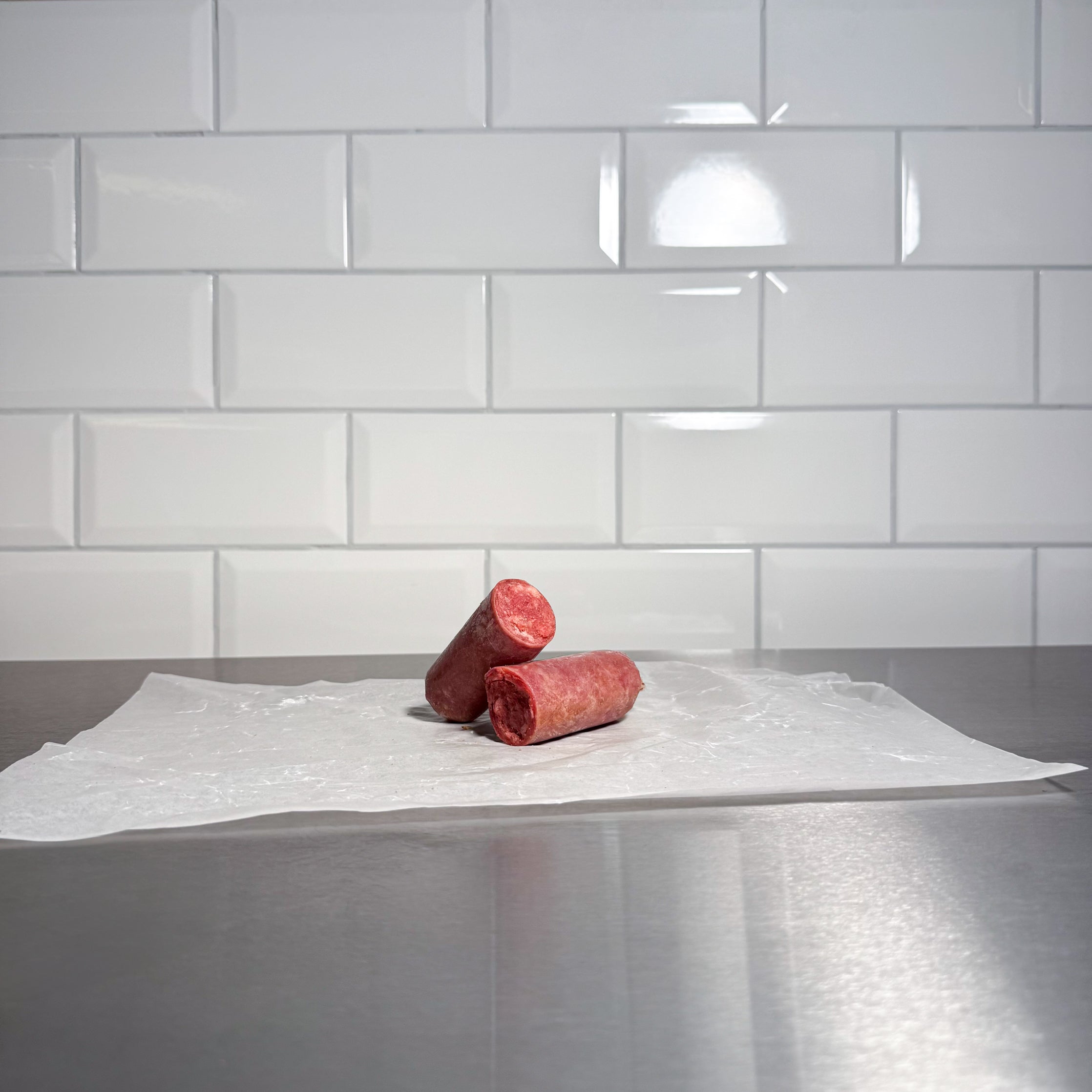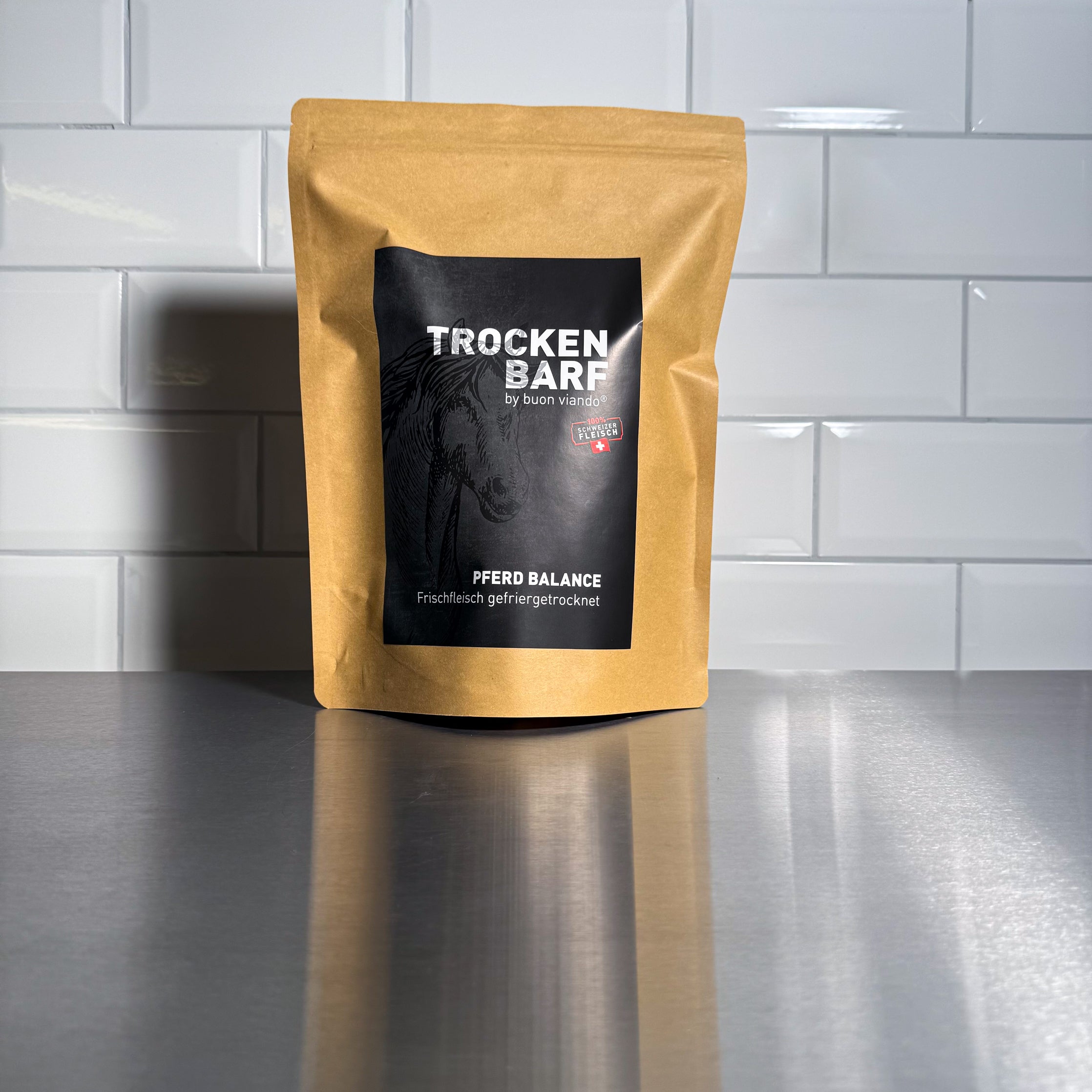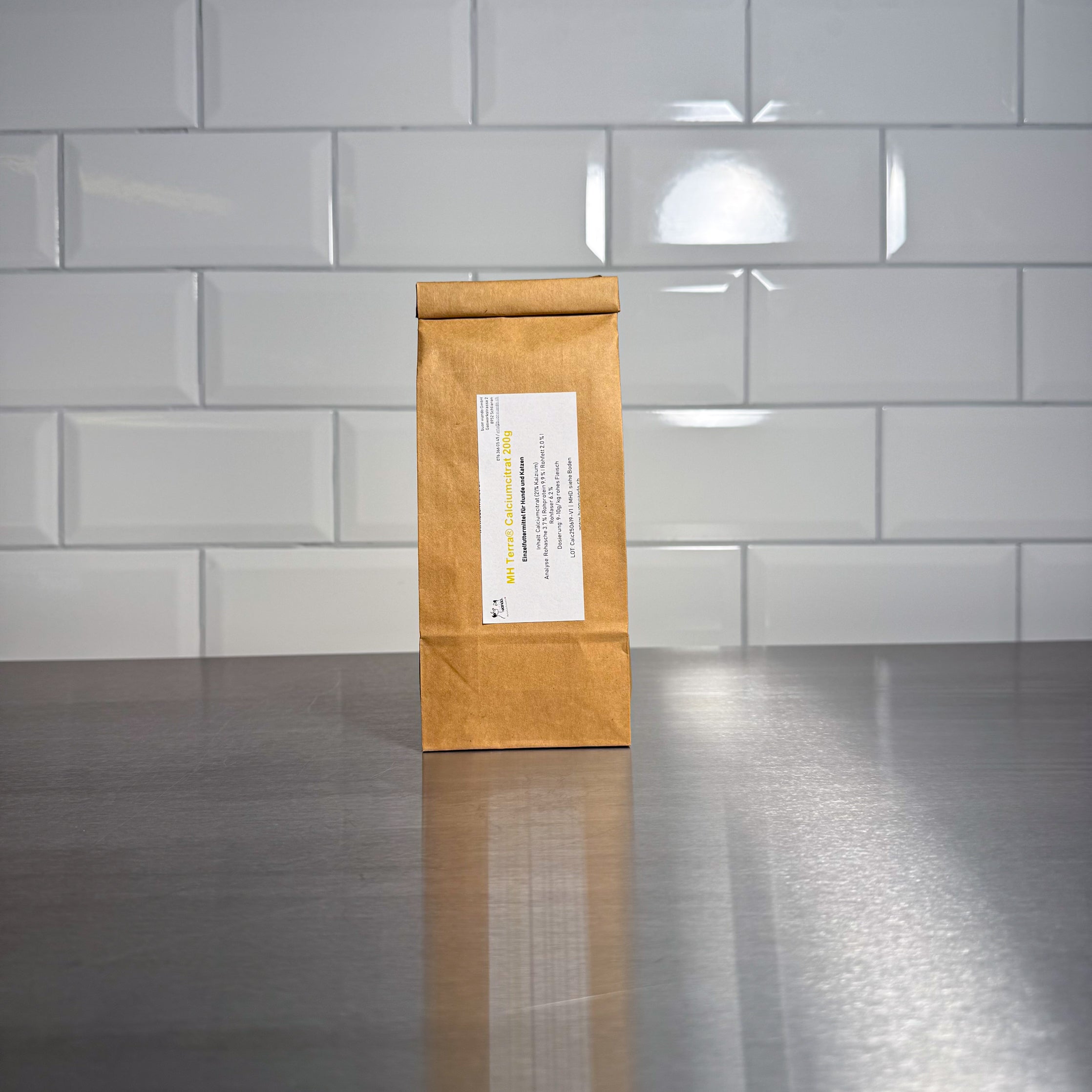What is calcium citrate?
Calcium citrate is the calcium salt of citric acid. It is considered particularly bioavailable – meaning it's easily absorbed by the body – and is gentle on the stomach and highly soluble. This is precisely why it is used in human medicine for calcium deficiencies.
When does calcium citrate make sense?
Not every dog or cat tolerates bones. Some animals gulp their food, others are prone to constipation, and cats in particular often avoid eating bones altogether. Animals with sensitive gastrointestinal tracts, seniors, or recently surgically treated animals often benefit from a softer, precisely dosed source of calcium.
Typical uses:
- When bones are avoided in raw feeding
- For sensitive digestion or a tendency to constipation
- For cats that do not accept raw food
- During breeding, pregnancy, or in old age (after consultation with a specialist)
How should calcium citrate be dosed?
The dosage depends on the individual calcium requirement and is best calculated based on the total food ration. Roughly speaking, the following can be said:
- Dogs need approximately 50–90 mg of calcium per kg of body weight daily
- Cats approximately 60–100 mg/kg daily
Important: If bones, eggshells, or bone meal are already included in the ration, this must be taken into account – an excess of calcium can be harmful in the long term.
Personal assessment
We like to use calcium citrate where bones are not an option – especially for cats or during periods of recovery with a bland diet. Its ease of use and good tolerance make it a true all-rounder in feeding practice. Particularly practical: It's tasteless and can be easily mixed into food.
Conclusion
Whether as a permanent solution or as a supplement during specific life stages, calcium citrate is a safe and effective way to provide dogs and cats with calcium as needed. It doesn't replace a balanced diet, but it fills a gap where bones can't or shouldn't be fed.












